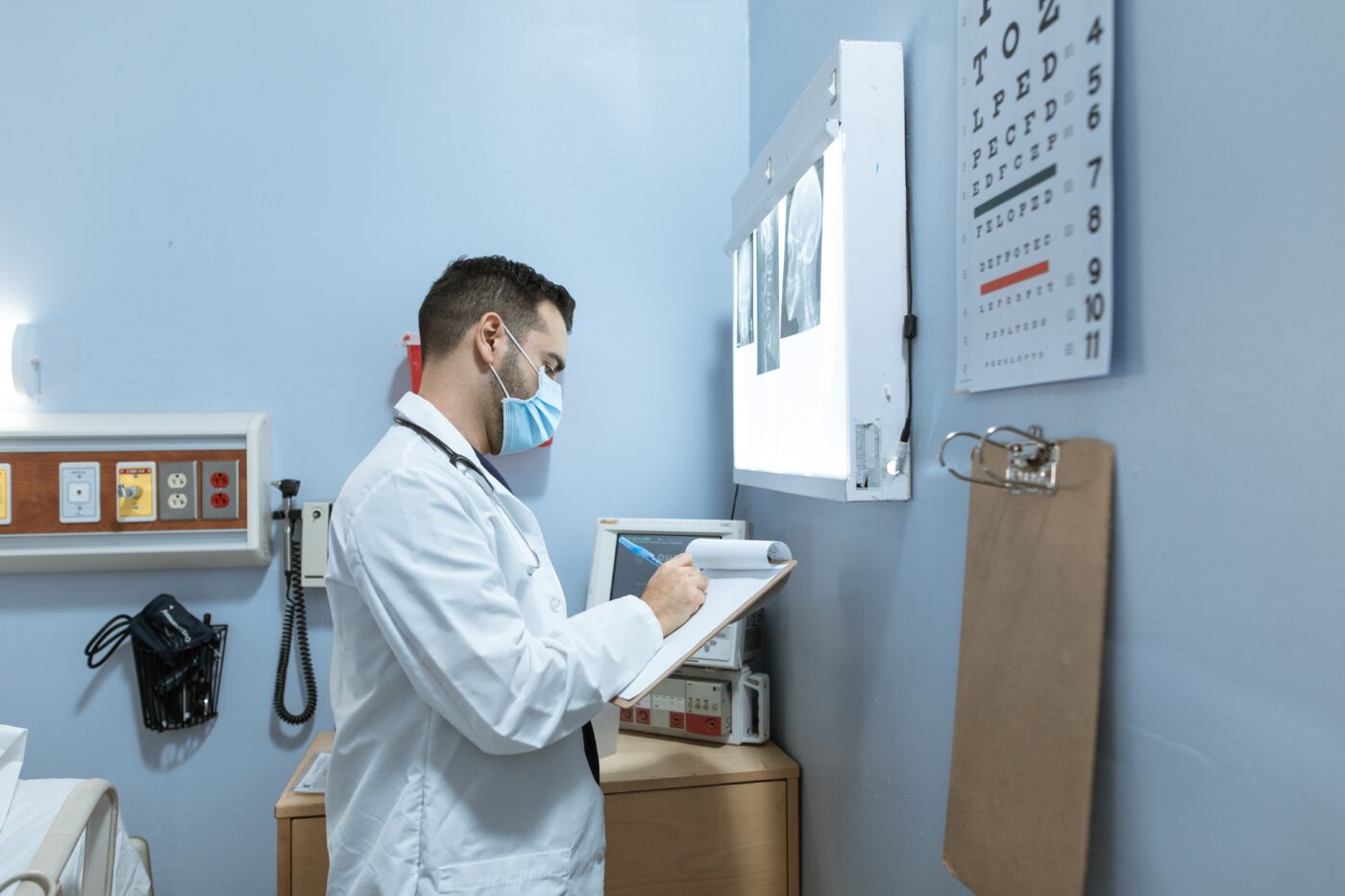When a person decides to donate their body to science, they’re contributing to a profound legacy of educational advancement and medical research. This selfless act provides invaluable resources for teaching and developing new medical treatments that can impact countless lives. Body donation is governed by strict ethical and legal standards to ensure the respect and dignity of the donor are maintained throughout the process.
This article delves into what happens to a body donated to science.
The Donation Process
Before a body can be donated to science, individuals must take several important steps. First, one must register with a donation program, which may be affiliated with a university medical school, or a specialized organization focused on scientific research. The registration typically involves completing specific forms that detail the donor’s consent and the intended use of the body.
Furthermore, it’s crucial for potential donors to openly discuss their decision to donate their body with family members and loved ones. This discussion ensures that the donor’s wishes are clearly understood and respected after their passing.
Below are some key topics to address in these discussions:
- Reasons for Donation: Explain the personal motivations for donating, such as advancing medical research or education.
- Process Overview: Describe what will happen to the body immediately after death and during donation.
- Legal and Ethical Considerations: Ensure that all legal documents are in order and that the chosen program follows ethical practices.
- End-of-Life Plans: Discuss how this decision impacts funeral arrangements and memorial services.
- Family Concerns: Address family members’ questions or concerns about the donation process.
These steps ensure that the process aligns with the donor’s intentions and provides clarity and peace of mind for everyone involved.
On the other hand, for those wanting to donate their body to science, they may search for reputable organizations like SWIBA dedicated to facilitating such donations is SWIBA. This way, they can ensure the whole-body donation process is handled with care and professionalism. These organizations can provide detailed information and support for both donors and their families to make the journey as smooth as possible.
Initial Handling And Preservation
Upon the death of a donor, a critical and timely process begins to ensure the body remains suitable for medical study. The facility associated with the donation program is immediately notified, and arrangements are made to transport the body to the designated location without delay. This prompt response is crucial to prevent the natural onset of decomposition.
Once at the facility, the body’s preservation begins, most commonly through embalming. This process involves replacing the body’s natural fluids with chemical solutions that prevent decay and maintain tissue integrity, making the body viable for detailed study and research. The specific chemicals used can vary, such as formaldehyde-based solutions, and depend on the requirements of the educational or research institution.
Lastly, the method and extent of preservation might also differ based on what the body will be used for, whether it’s dissection for anatomical studies, surgical training, or other scientific research. Each program tailors its approach to ensure that the body can be used effectively in its intended educational or research context.
Use In Medical Training And Research
Donated bodies play a crucial role in the education and training of future medical professionals. In educational settings, particularly in medical schools, donated bodies are integral for teaching anatomy through dissection and examination. This hands-on experience can give students an irreplaceable understanding of complex human body structures, which is difficult to achieve through textbooks or synthetic models alone.
Also, students can learn about the variability in human anatomy, gain practical skills in surgical techniques, and develop a profound respect for human biology and the ethics of medical practice. Beyond educational purposes, donated bodies can significantly contribute to advancing medical research. They allow researchers to do the following:
- Study Disease Progression: By examining bodies afflicted with various diseases, researchers can observe how diseases affect human organs and systems over time, providing insights crucial for developing treatments.
- Evaluate Medical Techniques: Donated bodies offer a platform for medical professionals to practice and refine new surgical procedures before they’re performed on living patients, which can increase their safety and efficacy.
- Develop Surgical Procedures: Researchers use real human bodies to innovate and enhance surgical methods, which can lead to breakthroughs in medical procedures.
- Pharmacological Testing: Bodies can be used to study how drugs affect the human system, which is vital for developing new medications.
The use of donated bodies in these capacities can enhance medical education and drive forward medical research, leading to new understandings and improvements in patient care and treatment outcomes. Thus, donating a body to science serves as a lasting contribution to advancing healthcare.
Ethical Considerations And Donor Respect
Ethical considerations are central to the practice of handling donated bodies in medical research and education. Institutions that receive body donations operate under stringent ethical guidelines designed to honor the dignity and integrity of the donor. These standards are meticulously enforced to maintain public trust and respect for the donation process.
Some key ethical considerations in the handling of donated bodies include:
- Consent: Ensuring that donors have provided informed consent is fundamental. This involves making sure that donors are fully aware of how their bodies will be used and that they have willingly agreed to these uses without any coercion.
- Anonymity and Privacy: Personal details are usually anonymized to protect donors’ identities and privacy. This can help safeguard the individual’s confidentiality while allowing educational and research activities to be conducted with respect.
- Respectful Treatment: Donated bodies are treated with the highest level of care and respect. This includes proper storage, handling, and disposition of the bodies according to ethical and legal standards.
- Use for Intended Purpose: Ensuring that the bodies are used solely for the purposes specified by the donors, such as medical training or research. Institutions must avoid any misuse or disrespectful treatment that contradicts the expressed wishes of the donor.
- Ethical Disposition: After their use in educational or research settings, the remains are handled ethically. Options may include cremation, with ashes either returned to the family or disposed of in a dignified manner, depending on the donor’s wishes.
- Regulatory Compliance: Adhere to all applicable laws and regulations governing body donation and human tissues’ use in research and education. This includes compliance with state and federal regulations to ensure ethical standards are met.
These ethical practices underscore medical institutions’ commitment to upholding donors’ dignity and ensuring that their generous contributions to science are honored respectfully and responsibly.
The Return Of Remains
After a body has served its purpose in educational or research settings, the remains are typically cremated as a final step in the donation process. This practice is conducted with dignity and respect, following the ethical guidelines established by the institution. The disposition of the ashes is handled according to the wishes expressed by the donor before their death, or as decided by the next of kin. Some options for the ashes include:
- Return to Family: The ashes may be returned to the family to allow them to conduct a private memorial service or to disperse them in a manner meaningful to them.
- Scattering or Interment by the Institution: With prior consent, some institutions may scatter or interbreed the ashes in a dedicated memorial site, often within the institution’s grounds or in a designated memorial garden.
- Memorial Services: Many donation programs organize memorial services to honor donors’ contributions. These services can allow family members, medical students, and faculty to acknowledge and appreciate the invaluable gift of body donation.
These practices ensure that the final handling of the donated bodies is performed with care and honor the donor’s legacy of contribution to science and education.
The Impact Of Donation
The decision to donate a body to science carries a profound impact that extends well beyond the immediate benefits of medical education and research. This act of generosity facilitates significant advancements in healthcare and offers emotional and psychological benefits to both donors and their families. Some key aspects of this impact include:
- Legacy of Learning: Donors can contribute directly to the education of future healthcare professionals by providing them with invaluable, real-life anatomical studies that textbooks can’t replicate.
- Advancing Medical Research: Donated bodies play a critical role in medical research, aiding in the development of new medical procedures and treatments that can save or improve lives in the future.
- Personal Fulfillment: Many donors experience a sense of personal fulfillment and altruism, knowing that their final act on earth contributes significantly to the welfare of others.
- Comfort to Families: Families often feel comforted by the thought that their loved one’s donation is making a meaningful difference in the world, advancing medical knowledge and education.
- Social Impact: Beyond individual contributions, body donation helps foster a broader culture of giving and supports the communal goal of improving societal health outcomes.
These impacts highlight the multifaceted value of body donations in practical terms and in fostering a legacy of generosity and societal advancement.
Conclusion
Donating one’s body to science is a noble decision that can profoundly impact medical education and research. It requires careful consideration, preparation, and communication with loved ones to ensure that the process aligns with the donor’s wishes. By keeping the information mentioned above in mind, individuals can successfully donate their body and leave a legacy that continues to influence the medical community and improve public health long after they are gone.



